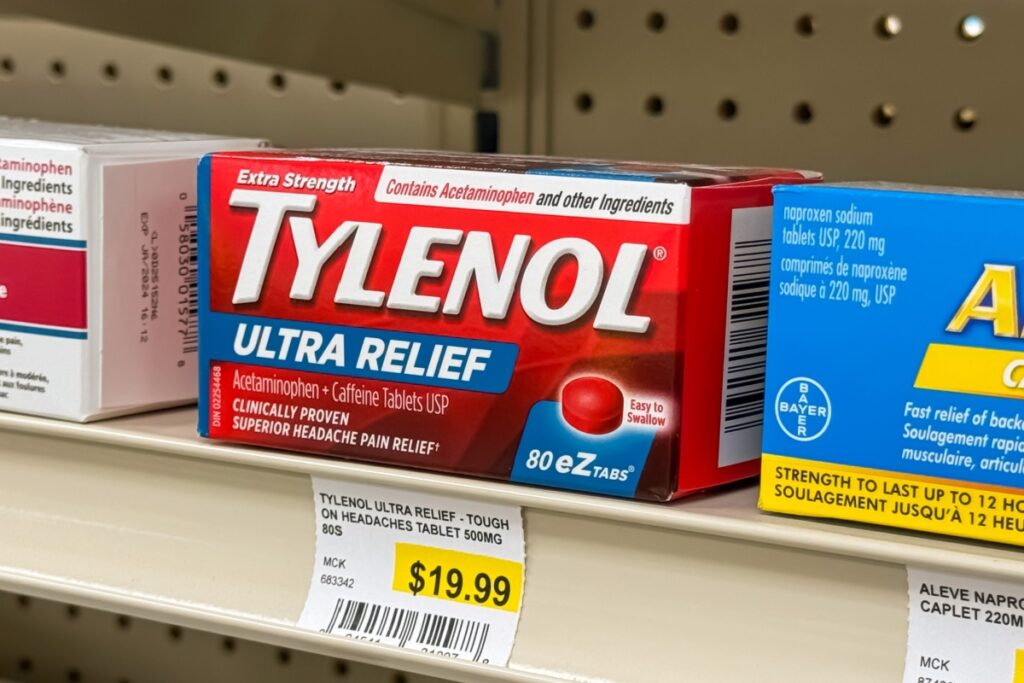President Donald Trump recently sparked controversy by suggesting that Tylenol, one of the world’s most widely used painkillers, could be linked to autism in children. The comments were made during a campaign appearance, where he referenced the use of acetaminophen (also known as paracetamol) during pregnancy. Trump’s remarks mirrored earlier, unsubstantiated claims from Robert F. Kennedy Jr., who has long advanced conspiracy theories about vaccines and medications.
The statement drew immediate criticism from medical experts, who highlighted that no credible scientific evidence supports such a connection. For decades, acetaminophen has been a cornerstone of over-the-counter pain and fever relief, trusted by millions of patients worldwide. Trump’s allegations, despite lacking proof, reignited public debate over medication safety and once again underscored the influence of political figures in shaping public health narratives.
Market Reaction And Kenvue’s Response
The pharmaceutical company Kenvue, which manufactures Tylenol following its 2023 spin-off from Johnson & Johnson, saw its stock initially dip after Trump’s comments. However, shares quickly rebounded the following day, suggesting that investors remain confident in the strength of the brand and the company’s ability to withstand reputational challenges.
Kenvue issued a statement reaffirming the safety of acetaminophen, emphasizing that the medication has been the subject of rigorous study for decades. The company stressed that when used according to label instructions, acetaminophen is considered safe by regulatory agencies worldwide. Tylenol is a flagship product, contributing billions of dollars annually to Kenvue’s global revenue, and remains a household staple in more than 80 countries.
Financial analysts noted that while negative headlines can create short-term volatility, the long track record of acetaminophen’s safe use, combined with the absence of credible scientific evidence linking it to autism, makes lasting financial damage unlikely. Still, the episode highlights how political commentary can temporarily disrupt public confidence and investor sentiment in even the most established consumer health products.
Scientific Consensus On Acetaminophen Safety
The medical community has consistently found no causal link between prenatal acetaminophen use and autism spectrum disorders. Organizations such as the U.S. Food and Drug Administration (FDA), the Centers for Disease Control and Prevention (CDC), and the American College of Obstetricians and Gynecologists maintain that acetaminophen remains an important and safe option for pain and fever management during pregnancy when used as directed.
Several large-scale studies have examined whether there might be an association between acetaminophen exposure in the womb and developmental issues in children. While some observational research has suggested a possible correlation, leading scientists caution that these findings are not proof of cause and effect. Factors such as the underlying health conditions of pregnant women, genetics, or other environmental influences may explain the statistical associations observed in certain studies.
Experts warn that spreading misinformation could discourage pregnant women from using a medication that is widely recommended for fever reduction, an important factor because untreated high fevers during pregnancy can themselves increase risks to maternal and fetal health. The overwhelming consensus among health professionals is that acetaminophen remains a safe and necessary treatment when used appropriately.
Political And Public Health Context
Trump’s remarks reflect a broader trend of political figures influencing medical debates, often without scientific backing. Robert F. Kennedy Jr., currently running as an independent presidential candidate, has built his platform on skepticism toward vaccines and medications, despite repeated repudiation by scientists and health authorities. By repeating Kennedy’s earlier claims about Tylenol, Trump added new fuel to concerns about the spread of health misinformation at the highest levels of political discourse.
Public health experts warn that unverified statements can have far-reaching consequences, especially when amplified through social media. Misinformation about vaccines during the COVID-19 pandemic, for example, contributed to widespread confusion and vaccine hesitancy, undermining public health efforts. Similar dynamics are now feared in relation to over-the-counter medications like acetaminophen, which millions of Americans rely on for everyday relief from pain and fever.
The episode also raises questions about the role of communication in politics. With healthcare already a contentious issue in the upcoming election, remarks questioning the safety of a trusted medicine risk distracting from substantive debates about policy, access, and affordability. Experts emphasize the need for political leaders to convey accurate information, particularly on matters that affect public health. Trust in science and medicine, they argue, is fragile and can be eroded quickly if misinformation gains traction.
Health authorities continue to reiterate that acetaminophen is safe when used correctly, urging the public not to be swayed by unsupported claims. For pharmaceutical companies like Kenvue, the challenge lies not only in managing market perceptions but also in safeguarding consumer confidence against a backdrop of increasing skepticism toward established science.


